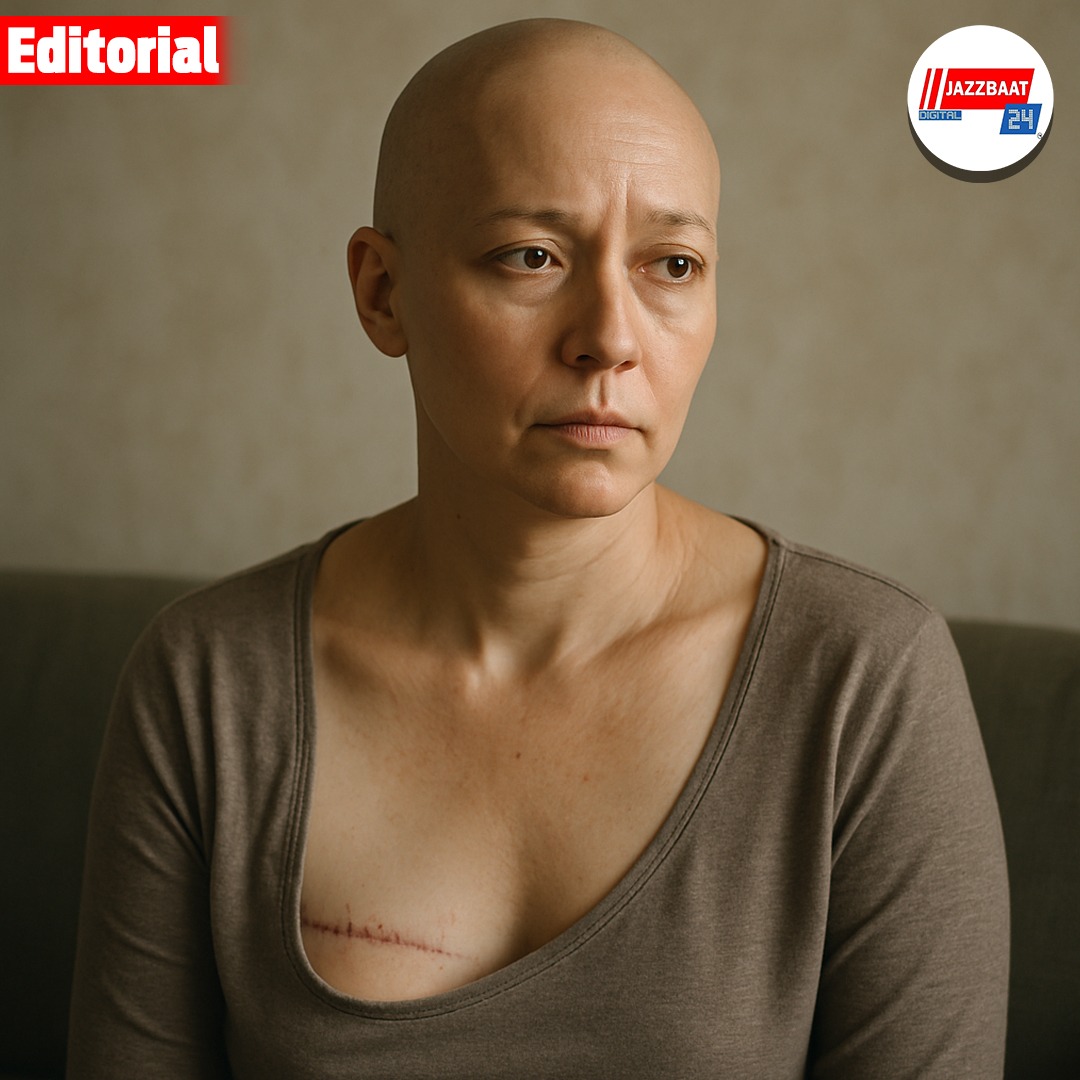
Millions of young women around the world are being diagnosed with cancer today, and many are surviving the difficult journey. This survival is like a new life—where the body, self-identity, social position, and future are all changed. Breast cancer, uterine cancer, ovarian or cervical cancer—are now affecting women at a much younger age, especially among women under 40, with rates increasing alarmingly. Yet our health system is almost silent about preparing for life after cancer, empathy, or structural support.
Today, as a result of advances in medical science, the survival rate for early-stage breast, uterine, or ovarian cancer is 95 to 99 percent. But the reality behind these statistics is very cruel. Even if they survive, women face a different and difficult reality—the change in their bodies, the loss of the ability to bear children, and the changing position of their position in society regarding the concept of sexuality and femininity. But no one—the health system, society, workplace, or family—stands by women in adapting to this new identity.
We often see cancer as a personal struggle. Just as the stories of women “winning the battle” praise women’s bravery, the stories hide the structural failures that are creating so many patients. The reality is that about 90-95 percent of these diseases are not genetic, but are caused by environmental pollution, chemical toxins, hormone disruptors, toxins in food, and lifestyle stress. In other words, they are largely preventable. So the question arises—who is taking responsibility for this prevention?
Our society still sees cancer as a “curse” or a “personal failure.” Not getting screened, not following the rules, not seeing a doctor on time—these are the limits of the discussion. However, if we look at the root causes of diseases like cancer, we see that it is actually a reflection of a deep political, economic, and public health failure. Yet cancer is still portrayed as a personal battle, and the state, policymakers, and industrialists are given immunity.
When a woman with this disease loses her breast, uterus, or ovary in surgery, it is not just a physical loss—it is the beginning of a deep psychological and social separation. On the one hand, there is a crisis about her own femininity, on the other hand, the woman's changed appearance in the eyes of society, the loss of the possibility of becoming a mother, relationship complications, and discrimination in the workplace—all of these begin a new battle. Yet, women's sexuality, physical exercise, bone loss, risk of heart disease, neurological complications, and even depression in their post-cancer lives are almost neglected by the health system.
Behind this inhumane system is an unfortunate commercial cycle. Today, cancer, and especially breast cancer, has been made into a 'brand'. Pink ribbon campaigns, the beauty of 'mastectomy scars', the 'strong woman survivor' image—these are stories made up to hide the real problem. This image has been created by beauty brands, pharmaceutical companies, and corporate organizations, who see women’s suffering as an opportunity to sell their products.
In this context, renowned author Susan Sontag said in her famous book Illness as Metaphor, “Cancer is a disease that makes death inevitable in the imagination.” She showed how this disease is used in our political and cultural metaphors—for example, Trotsky said, “Stalinism is the cancer of Marxism.” Sontag wrote during the Vietnam War in her own country, America, that “the white race is the cancer of human history.” Even today, the word cancer is used as a metaphor for disaster, but the crisis in the lives of people with cancer is much more tragic and difficult than that metaphor.
On social media or in movies, we see a woman bravely defeating cancer and returning to life. But in real life, behind this heroic story lies loneliness, sadness, mental breakdown, and above all, uncertainty about the future. The idea that survival means everything is fine is wrong. On the contrary, life then becomes more complicated.
What is the way out of this situation? First, we need to change the way we talk about cancer. It can no longer be presented as a ‘personal struggle’ or an ‘adventure story’. Cancer is a growing public health crisis for which the state, industry and policymakers must take responsibility. Second, there must be long-term rehabilitation, mental health support, re-entry into work and reproductive health advice for women survivors. Third, we must force industrialists and companies to follow hygiene rules, so that risks such as environmental pollution and chemical poisoning are reduced.
We need to be more humane, scientifically based and politically responsible in the discussion of women’s cancer. It is not enough to just take pictures with pink ribbons, but to call for real change – where every woman can rebuild her body, mind, identity and future with dignity.